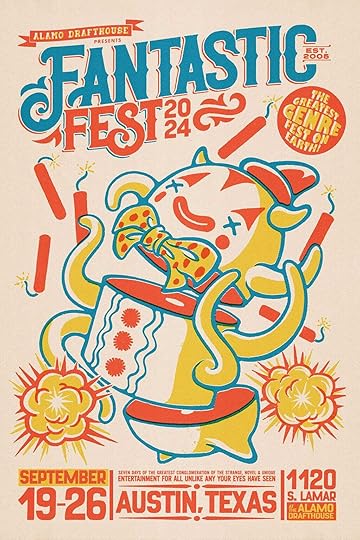Will & Harper Try to Change the World
 Images Courtesy Netflix
Images Courtesy NetflixContent Warning: This review contains discussions of anti-trans legislation, misgendering, and anti-trans hate.
The new documentary Will & Harper is a touching exploration of the complexities of what happens in a friendship when one person transitions — and a heartbreaking showcase of how far America has to go when it comes to accepting trans people. Will Ferrell, the popular comedian of SNL (Saturday Night Live) fame, joins his close friend Harper Steele, former SNL head writer from 2004–2008, on a road trip across the United States to rediscover the country and their friendship after Steele’s gender transition.
Making art from the perspective of very personal topics like queer and trans identity can be complicated. Between battling the audience’s expectations and ingrained stereotypes or beliefs, media that engage with so-called “controversial” topics is often under stricter scrutiny, even when the creators and figures at the center of that media are working from a place of personal experience.
Another concern is risk, which is the tense knife edge of anxiety that carries Ferrell and Steele along their road trip through America. The “concept” for the documentary got its start when Harper first transitioned via an email sent to her closest family and friends. Will Ferrell was one of the quickest to respond, accepting Steele’s email with openness, and later, when she expressed a desire to revisit her favorite spots in America, proposing the idea of a documentary road trip.
In today’s often anti-trans America, the concept for the documentary, while presumably giving a reason for “why this format,” somewhat skirts around the fact that for both Ferrell and Steele, it involves significant risk. As the two revisit important places in Steele’s life, from her childhood home to dive bars and an Indiana Pacers game, it quickly becomes clear that while Ferrell had the best of intentions, that risk is always simmering under the surface.
At the aforementioned basketball game, Will Ferrell is introduced to the Governor of Indiana, Eric Holcomb. It’s obvious in the film that this is an unplanned meeting, despite media coverage that implies it was a staged event to promote the documentary. The situation unravels for Ferrell in retrospect as he realizes only after posing for a photo that Holcomb is a Republican who, in April of 2023, signed a ban on gender-affirming health care for minors. “I wish I had the wherewithal to go, ‘What’s your stance on trans people,’” Ferrell says.

This is just one incident documented by the film that shows the disconnect between Ferrell’s role as celebrity and the risk that exposure places on Steele. In Texas, Ferrell and Steele visit a Texas steakhouse, where Ferrell dresses up as Sherlock Holmes for the crowd and attempts to eat a 72-ounce cut of steak. But the room quickly sours as the realization that Steele is trans sweeps the crowd, resulting in a flurry of hateful social media posts. “I was feeling a little like my transness was on display, I guess,” Steele says in the film, “and suddenly that sort of made me feel not great.”
Ferrell begins to cry as he remarks, “I feel like I let you down in that moment, you know? I was like, Oh shit, we gotta worry about Harper’s safety.”
For Will Ferrell, the risk is mitigated by his hyper-celebrity status. Ferrell is a supportive friend who is eager to learn and help. For Steele, the risk is intimately closer to life and body. Steele is a longtime fan of America’s seediest underbelly — and the desire to rediscover those spaces, which are often masculine-coded, is a fascinating one. Watching her juggle the fear of entering a place that might not be safe for a woman, let alone a trans woman who speaks openly about her transition to other patrons, is anxiety-inducing and yet, a testament to her resolve of spirit.
At every turn, Will Ferrell is open and honest, diffusing tension with comedy. He shows that talking openly about transness shows respect for that person’s choice, explaining to each person they meet that they are filming a documentary about Steele’s transition, yet never pressing the point. At one point, he waits in the cold outside a dive bar in Oklahoma for Steele as she enters alone. Inside, she meets a surprising number of friendly people, including a group of indigenous people who sing a traditional song for her.
The film is shot mostly in the car, with beautiful scenes of US landscapes from the Grand Canyon to the Pacific Ocean. This creates a kind of nostalgia that deepens the film’s emotional aspects. In many ways, despite the grim landscape that America represents for trans people, the film is also a love letter to America.

I don’t think the film goes out of its way to place Steele in danger as a form of exploitation. It shows the reality of being trans, from small misgendering at diners to how relationships change or stay the same after a major life shift. Steele is an active participant in the shaping of this narrative, and maybe much of that tension comes from the real stress of experience — of reality.
The casual viewer might ask: Is the risk worth it? And maybe other creators are wondering that too. Can I put myself out there? Where is the line between discomfort and outreach?
Both Ferrell and Steele were in attendance at the Fantastic Fest screening of Will & Harper. Dressed in her signature bright red, Steele was on display again, this time to a much more accepting audience of Texans, most of whom were still wiping away tears as Steele was asked who she hoped the film would reach. She replied that she hoped it reached the Anchorman or Talladega Nights crowd.
It was this reference to Will Ferrell’s early roles that hit home for me. I wasn’t much of a fan of a certain subsect of Ferrell’s bro-y comedies. My favorite Ferrell films are Stranger than Fiction, Elf, Bewitched, and Eurovision Song Contest, to name a few. These softer films, often romantic comedies, get at the heart of Ferrell, a heart which is on display in Will & Harper.
I left the film thinking that if there was one celebrity you could have along with you on the journey through a road-trip-turned-documentary and later Netflix top release, let it be Will Ferrell.
I think what Steele was saying is that it is exactly those men who love Ferrel’s unique form of dude comedy — dick and fart jokes only, please — who really need to see their view of masculinity challenged, who could stand to learn something from Will & Harper. Maybe a way into acceptance is through humor and comedy. Maybe it’s through seeing your favorite celebrity be open and vulnerable about their shortcomings, as well as accepting of their trans friend. Maybe it’s through seeing the honest representation of what it is to be trans in America.
The possibility of creating empathy for trans people is worth the risk, in my opinion, and I hope we see more films willing to deal honestly with the very human side of living life authentically.
This film is part of our coverage of Fantastic Fest, 2024, taking place September 19–26, 2024 in Austin, Texas.


Interstellar Flight Magazine publishes essays on what’s new in the world of speculative genres. In the words of Ursula K. Le Guin, we need “writers who can see alternatives to how we live now, can see through our fear-stricken society and its obsessive technologies to other ways of being, and even imagine real grounds for hope.” Visit our Patreon to join our fan community on Discord. Follow us on Twitter, Facebook, or Instagram.
[image error]Will & Harper Try to Change the World was originally published in Interstellar Flight Magazine on Medium, where people are continuing the conversation by highlighting and responding to this story.



